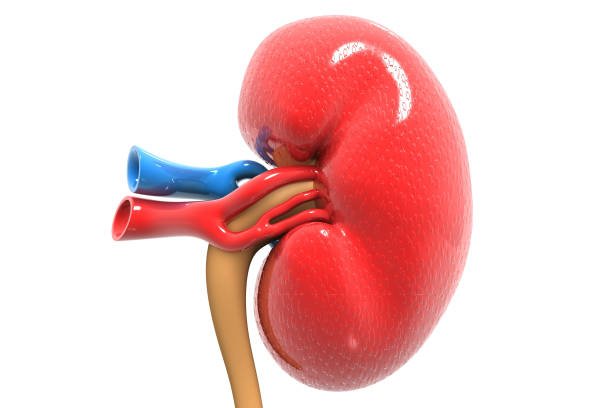Chronic Kidney Disease Doctor Nagpur

Chronic Kidney Disease
Chronic Kidney Disease (CKD) is progressive condition where kidneys gradually lose function over time. Unlike acute kidney injury (AKI), CKD develops slowly and often goes unnoticed until significant damage has occurred.
What Causes Chronic Kidney Disease?
- Diabetes (Type 1 & Type 2) – High blood sugar damages kidney blood vessels.
- Hypertension (High Blood Pressure) – Damages kidney blood vessels, reducing filtration efficiency.
- Glomerulonephritis – Inflammation of kidney filtering units (glomeruli).
- Polycystic Kidney Disease (PKD) – Genetic disorder causing cysts in the kidneys.
- Chronic Urinary Tract Obstructions – Enlarged prostate, kidney stones, or tumors blocking urine flow.
- Recurrent Kidney Infections (Pyelonephritis) – Can lead to scarring and CKD.
- Autoimmune Diseases (e.g., Lupus) – Can cause kidney inflammation.
- Long-term NSAID Use – Overuse of painkillers like ibuprofen can harm kidneys.
Symptoms of CKD
- Fatigue & weakness
- Swelling in legs, ankles, or feet (edema)
- Frequent urination (especially at night)
- Foamy or bloody urine
- High blood pressure
- Loss of appetite & nausea
- Muscle cramps & itching (due to mineral imbalances)
- Shortness of breath (fluid buildup in lungs)
Diagnosis & Tests
- Blood Tests: Serum creatinine, BUN, and GFR estimation.
- Urine Tests: Albumin-to-creatinine ratio (ACR) detects protein leakage.
- Imaging: Ultrasound or CT scans to check kidney structure.
- Kidney Biopsy: In rare cases, to determine the cause of damage.
Treatment & Management of CKD
1. Lifestyle Changes
- Diet: Low sodium, controlled protein, limited potassium & phosphorus.
- Hydration: Drink enough water but avoid excess fluid retention.
- Exercise: Helps control blood pressure and diabetes.
- Quit Smoking & Limit Alcohol: Both worsen kidney damage.
2. Medications
- Blood Pressure Control: ACE inhibitors (e.g., lisinopril) or ARBs (e.g., losartan).
- Diabetes Management: Insulin or SGLT2 inhibitors (e.g., empagliflozin).
- Anemia Treatment: Erythropoiesis-stimulating agents (ESAs) or iron supplements.
- Phosphate Binders: To prevent bone disease in later stages.
3. Advanced Treatments
- Dialysis: Hemodialysis or peritoneal dialysis for Stage 5 CKD.
- Kidney Transplant: Best long-term solution for eligible patients.
How to Prevent CKD or Slow Its Progression
- Control blood sugar if diabetic.
- Keep blood pressure below 130/80 mmHg.
- Avoid NSAIDs (ibuprofen, naproxen) long-term.
- Get regular kidney function tests if at risk.Contact Us
Conclusion
Kidney specialists (nephrologists) play a vital role in diagnosing and treating kidney diseases. Early detection and proper management can prevent kidney failure and improve quality of life. If you experience kidney-related symptoms, consult a nephrologist promptly. Book Appointment
